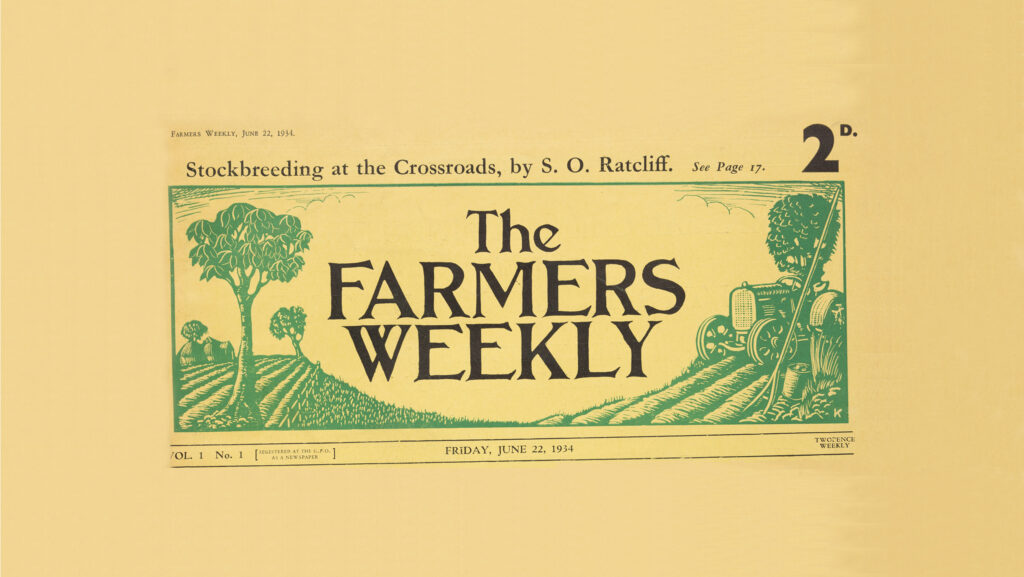Editor’s View: Essence of FW is the same as 90 years ago

As journalists, we have to have the humility to recognise that the words we toil over often have a shelf life similar to milk.
News is not new for long and one edition at your elbow on the kitchen table (or story on a smartphone) soon gives way to another.
I hope you at least occasionally put aside a particularly relevant or brilliant article to return to again, and perhaps even a whole magazine.
See also: 90 and Counting: 92-year-old Fred Campling’s farming life
This 90th anniversary commemorative issue may perhaps be one such edition.
It is amusing to think of readers looking back in a decade or two at this week’s regular articles and finding them as quaint as some of the content in the full reprinted version of our first-ever edition at the back of this issue.
Rooted, as so many of you are, on the very same land that was worked by your ancestors, it is perhaps no surprise that we are often nostalgic about the people and culture of yesteryear.
It has been sobering this week to think of those who read our early editions.
1930s
They were mired in the economic depression of the 1930s, living with the legacy of the First World War and had further horrors to come in 1939.
Indeed, our Canadian-born launch editor Frank Prewett fought in many of the most significant battles of the First World War, and sustained physical and mental injuries that he would carry for the rest of his life.
The post-war period was a time of great hardship, but also an era when the countryside teemed with a greater density of people and holdings that have since reduced greatly.
Through the boom and bust years alike, the inexorable pressure to consolidate to stay profitable has seen our industry feed the nation with ever-fewer people, often at significant cost to those that have fought to remain in harness.
A look back through the Farmers Weekly of the 1930s reveals a magazine bursting with pictures of horses as well as tractors, adverts for domestic help, as well as farmworkers – and very few men without a decent hat.
There was also much more interest in the doings of the aristocracy than this editor has ever felt obliged to take, but perhaps that is not surprising when you consider that we were founded by two of the most well-known Lords of their era, publishing giants both.
They were Lord Rothermere, whose descendants still own the Daily Mail, and Lord Beaverbrook, who owned the Daily Express, then the largest circulation newspaper in the world.
The latter was also about to achieve wartime fame as Winston Churchill’s minister for aircraft production.
Editors
Nine editors have preceded me, with launch editor Frank given a mandate to make the magazine a “counterblast to the old-established Farmer and Stockbreeder”.
While much has changed, a read of both the first few editions and copies from the previous 12 months will reveal that much of farming’s DNA remains the same, and I hope that journalistic rebel spirit lives on in us as well.
From the earliest days there has been much fretting over government trade policy, anxiety about the weather, and sentimentality about yesteryear.
There has also always been an abiding interest in all methods and devices that can serve the farmer’s desire to turn out crops and livestock at an improved profit.
As launch editor, Frank occupied a privileged position in that pre-internet era, selling farmers access to information and selling the agricultural industry access to farmers, at a time when there were many fewer routes between the two.
Despite this, in a time of hardship I’m sure he still had to work hard to justify to farmers why they should put their hands in their pockets and support the brand – a challenge that rightly remains to this day.
Like each of your businesses, we will have to continue to show value, adapt when required and live within our means.
I count just 18 companies that advertised in the first edition that are still in existence independently or as part of an identifiable successor business. There is no inherent right to exist.
What we do is remarkably similar to Frank and his team – attempting to provide you with unbiased and practical solutions to on-farm problems and seeking answers to difficult questions on your behalf.
Frank’s time at FW reportedly ended in disgrace when (a few years later) he fell out with the publisher and walked out on press night, but the “new and independent paper…for farmer and producer” that he helped plant still bears fruit thanks to the enduring support of the farming industry.
So whether you are a new or veteran reader, thank you very much for your support of Farmers Weekly. Here’s to the next 90 years.

